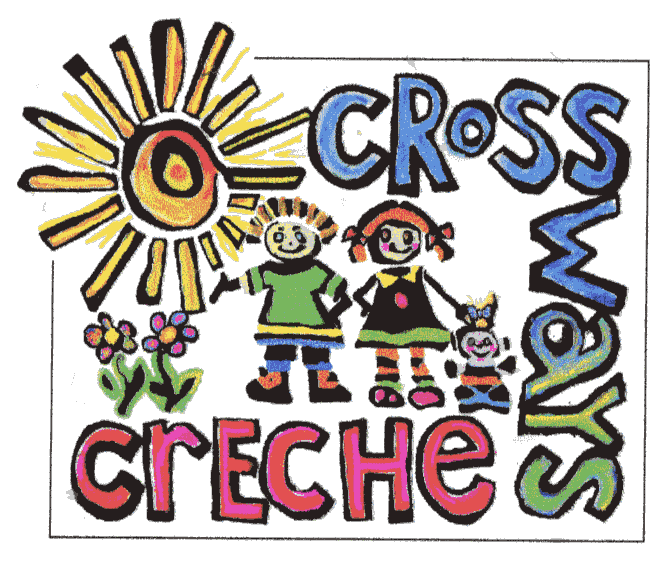Also see: Policy Review Procedures
Rationale: (Why do we need this policy?)
This Policy provides an overarching framework which applies to all Crossways policies. This Policy is designed to support effective consultation and decision making and ensure Crossway’s policies support our Shared Mission: “To operate a sustainable, cooperatively governed, parent run organisation benefiting children of today and of the future.”
This policy will help ensure consistent and efficient practices are applied to policy formation and change, in line with relevant legislation, standards and our community expectations.
Key Definitions What is a Policy? A policy describes the guideline or rule to be followed, acts as a framework for decision making, and ensures consistent practice.
What is a Procedure? A procedure specifically outlines the implementation process and who is responsible.
Objectives: (What do we hope to achieve?) As above, to provide a standard framework for the formation, maintenance and change of all Crossways policies. This framework will:
- Help ensure policies support our Shared Mission
- Help ensure policies maintain currency and meet relevant legislative requirements and standards
- Help ensure processes and procedures are clear, consistent, and safe
- Provide an opportunity for community engagement and consultation in policy formation
- Embrace kotahitanga (unity) by working towards a common goal, helping to provide the committee, staff, and stakeholders a clear understanding of roles and responsibilities.
Guidelines: (How will we achieve it?)
The Policy Officer or their delegate is responsible for
- Maintaining a schedule of planned and emergent policy review
- Research and data gathering
- Drafting the document
- Circulation of draft document
- Consultation with stakeholders
The Committee is responsible for
- Supporting kotahitanga through proactive engagement during policy consultation phase
- Following consultation, approving new and updated policies submitted by the Policy Officer
- Annual / Bi-annual committee agenda item to help ensure policies are updated / maintained
- Communication and support to implement approved policies and procedures
The development and revision of policy documents
Triggers for a new/or reviewing, policy and/or procedure may include,
- changes to Government policy or legislation
- outcomes of internal review and evaluation
- response to an incident of concern or harm
- changes to the operating environment
- a planned schedule of review
Policy should be informed by
- Education and Training Act 2020
- Education (Early Childhood Services) Regulations 2008
- Licensing criteria for centre-based education and care services 2008 (updated April 2021)
Relevant legislation, which may include,
- The Health and Safety at Work Act 2015.
- Food Act 2014 and the Food Regulations 2015.
- Children’s Action Plan & Vulnerable Children Act 2014
Te Whāriki Early childhood curriculum (2017)
Tātaiako and Tapasa
Best practice from relevant and recognised Codes, Standards, and authorities
Where appropriate Tangata Whenua (mana whenua iwi)
The centres’ mission, philosophy, and values
Seeking whānau, kaiako and tamariki voice
Determining the policy rationale, objectives, and guidelines is a collaborative exercise. should involve research to clarify what is required and weaving this information within the context of our Crossways setting.
Policy Template
The Policy Template (attached as Appendix 1) sets out the required content for each Crossways policy, including:
- Approval and review dates
- Rationale (reason for having the policy)
- Objectives (what will be achieved through the policy)
- Guidelines (principles/requirements that will shape practice)
- Links to associated policies and procedures
Simple, friendly, and consistent vocabulary should be used so terms in the policy documents are clear.
Policy should reflect agreed practice by being regularly reviewed, evaluated, and updated in consultation with parents, staff and others who have a significant interest in our learning community. A robust review process should be developed to ensure parents, staff and others can discuss policy and suggest changes.
Consulting whānau, kaiako, tamariki and others may include inviting opinions and ideas through,
- informal conversations
- an interactive board
- suggestions box
- emails or newsletters.
- Hui where policies are reviewed
- Hardcopy and softcopy media
Procedures
If required, procedures will be documented separately to capture practical application of policy. This allows procedures to be kept up to date without full policy review and consultation process.
Effective procedures:
- Are short, clear and help management and staff understand their roles and responsibilities
- ensure consistency of approach and embedded practice
- enhance effective management and teamwork
- guide high-quality practices
- promote collaboration and partnership with whānau.
- promote inclusive practice.
Accountability
The Policy Consultation template (attached as Appendix 2) will be completed for each policy undergoing consultation, prior to submission to the Committee for approval,
including:
- Dates
- How engagement with the community was undertaken
- A summary of community feedback and comments, Crossway’s responses, policy changes made, and the rationale
- Proposed changes to policy, and how proposed changes support our Mission and wider Policy Framework objectives
The policy consultation document must be approved by the Committee before being implemented. The Committee chairperson or their delegate are authorised signatories for committee approval.
Once agreed, Staff, parents, and community agree to follow the policy and any updates.
Significant changes to policy or procedure should be communicated to the Crossways learning community in a timely way.
References Regulation 47, criterion GMA4) Education (Early Childhood Services) Regulations 2008
Approved date: May 2021 Review date: March 2023